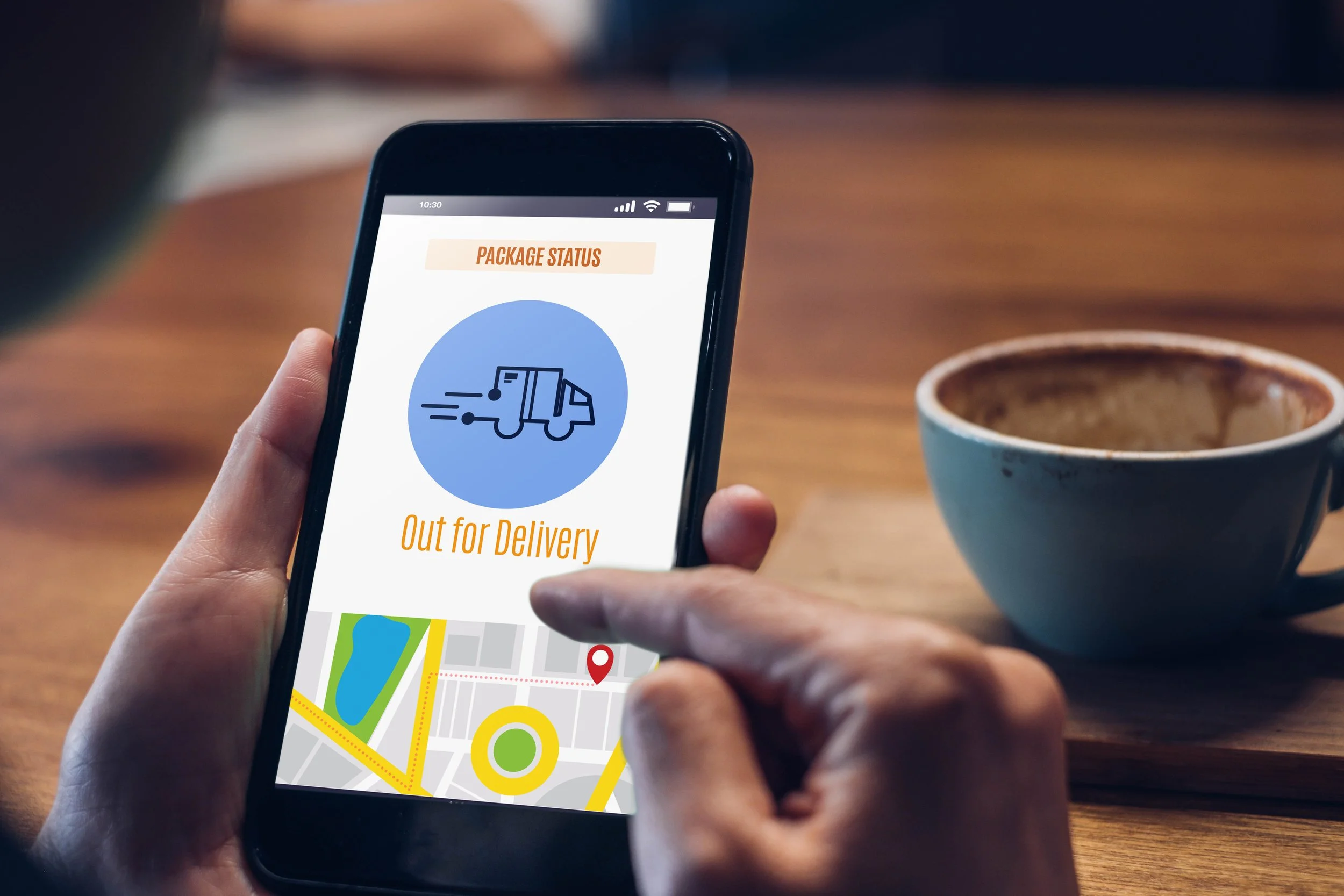Our Blog
Our team brings fresh perspectives, proprietary data and consumer insights that help brands thrive.
Insight you can act on: Fresh perspectives powered by trusted research.
Free Returns Aren’t So “Free” Anymore: Why that’s good for customers
For decades, “free returns” has been treated like a hygiene factor in online retail: a frictionless promise that keeps conversion rates healthy. But that model is now under increasing pressure from rising operational costs and could even become an historical anomaly.
Retailers are paying closer attention to returns behaviour, and customers who consistently push the system too far are beginning to feel the consequences. ASOS, H&M and Pretty Little Thing have all reviewed their returns policies or have actively closed accounts of serial returners.
Optimistic at Home, Uneasy About the World: What our latest data reveals
This past Monday was “Blue Monday”. Aside from sounding like a New Order song, it is often cited as the most depressing day of the year. The good news is that we made it through unscathed. The less good news is that the weather does not appear to have improved much since.
With Blue Monday falling this week, it feels like a timely moment to check in on our Optimism tracking and look at how positive UK consumers were feeling as we closed out December.
Are UK Consumers Ready to Roll the Dice on Investing?
In her Autumn Budget, the Chancellor made her intentions clear. She wants UK consumers to invest more. From April 2027, future cash ISA limits will be reduced to £12,000, while financial services providers are being encouraged to proactively reach out to customers with investment options and products.
The logic is straightforward. Shifting consumers from saving to investing should help unlock capital, fuelling growth and giving businesses the funding they need to expand and innovate.
The challenge is that the UK currently has the lowest investment rate of all G7 countries. So why are UK consumers so reluctant to move beyond savings accounts and into investments? And what is really holding them back from swapping safe piggy banks for higher risk but potentially higher return options?
Our latest data helps explain why this shift may be harder than policymakers hope.
How Winning Brands Build Advantage in 2026: Authenticity
As we begin 2026, one thing is already clear: organisations will continue to operate in a polycrisis as technological disruption, economic uncertainty and reputational risk collide. AI is reshaping experiences at speed, crises are unfolding in real time, and consumers are navigating a world that feels increasingly uncertain. In this environment, the brands and organisations that perform best are not those chasing every new tool or trend, but those with a clear sense of who they are.
A distinct signal can be seen in the data from our 2025 UK Reputation Index. Companies that are grounded in a clear sense of who they are will be better equipped to adapt, recover and lead amid change or uncertainty. Authenticity is not a positioning statement. It is the discipline of acting consistently, especially when conditions are challenging.
Authenticity provides clarity. It enables organisations to make confident decisions rather than reactive ones, and it helps consumers understand what a company stands for even as the world around it shifts.
A Nation of Nearly-There Achievers: How the UK really did with its 2025 goals
At this point in the year, goal-setting narratives typically split into two camps: success stories or silent guilt. But the reality for most UK consumers in 2025 sits somewhere a bit more measured and far more human. The Harris Poll UK has been tracking consumer mindset and goal achievement throughout 2025, and our latest data shows a nation that is ambitious, imperfect and still moving forward.
Is the Dining Table an endangered item in the UK: Or is it just evolving?
A couple of months ago, a BBC headline caught our attention: “Homes without lounges now a reality for renters.”
The article spoke to a very real shift in how UK homes are being rented and lived in. Communal areas are getting smaller, with individual rentable spaces increasingly prioritised for cost and flexibility rather than tradition.
It got us thinking.
If the lounge is under threat, what about the dining room?
Long held up as a key part of the home and the place where families gather, meals are shared and conversations unfold, is it quietly being side-lined too? Or is something subtler happening: not the disappearance of the table itself, but a transformation in how (and why) we sit around it?
2025: The Year UK Consumers Took Control
UK consumers are rebalancing priorities, reassessing value, and seeking control - not just over their wallets, but over how they live, spend and connect. As we close the books on 2025, here’s our wrap-up of the four dominant themes we’ve seen in our ongoing research with UK consumers across sectors and social contexts this year.
Finding the Emotional Sweet Spot: Which 2025 Christmas Ads Capture the Magic?
With Christmas fast approaching, let’s look at this year’s festive ads from some of the UK’s major retailers. Some heart-warming, some playful, some product-led and all hoping to capture the emotions of the season. But do they reflect how people actually want to feel this Christmas?
We set out to understand the emotional blueprint consumers are carrying with them into the festive period, using our Emotional Signature tool — a method that reveals instinctive, fast-thinking responses rather than surface-level opinions. Because emotional reactions, not rational ones, drive most festive decision-making.
Delivering Chaos: Christmas shoppers won’t wait for late parcels if strike threats become reality
For shoppers racing to get gifts under the tree, one thing matters above all else: confidence their parcels will arrive on time. And with Unite members at UPS balloting for strike action, our latest research shows something retailers can't ignore— shoppers are poised to change their festive buying habits the moment delivery reliability starts to wobble.
And the headline is clear: two in three shoppers would switch retailers if delivery strikes threaten Christmas orders.
The Heat (Anxiety) Is Rising: What consumers need as winter costs climb
As the cost-of-living crisis continues to shape daily life in the UK, heating has become a growing source of worry for many households. With the Government’s new budget landing today and prices still rising, people are heading into winter with a sense of uncertainty about how they will manage the months ahead. Staying warm is no longer a background consideration; it’s something people are planning around more carefully than ever.
Our latest research shows how this is affecting behaviour, budgets and wellbeing for households across the country.
Safety vs Savings: What brands must know as consumers reassess risk
As the cost-of-living crisis deepens, new data reveals a troubling shift: almost seven in ten Britons would consider choosing a less rigorously tested medication if the price was right. Despite valuing safety and quality above all else, rising costs are pushing many to make trade-offs they never expected to face. With trust wavering and concerns about authenticity growing, the pressure is mounting on brands—and the system—to help consumers feel protected.
Digital giants going offline: Is it their smartest move yet?
When Amazon Went Old School
Last week, something curious landed on my doormat: a colourful toy catalogue from Amazon.
At first, I was genuinely confused. A printed catalogue from Amazon? This felt completely offbeat for a brand that has built its empire on digital convenience and frictionless e-commerce. It seemed almost quaint.
But then I left it on the coffee table.
Can You Tell What’s Real? Why authentic CX still wins
Technology continues to redefine customer experience, often focusing on remote and digital services that prioritise efficiency and scale. However, what happens when customers desire more than a technologically advanced response — when they simply want an authentic, human interaction?
Our new insights come with an important warning: beware of outsourcing empathy to machines. This raises a key question for every organisation—do you know your company’s CX ‘moments of truth’? Those moments where authentic connection matters most to your customers.
Christmas 2025: Experience-Led, emotion-driven and redefining value
At The Harris Poll UK, we spend a lot of time listening—to what consumers are feeling, what they’re prioritising and how those choices are shaping brand relationships. And as we head into the 2025 festive season, the mood of the nation feels quietly optimistic.
Economic pressures may still be part of daily life, but people are finding new ways to create joy and connection. Even in tighter times, UK consumers are seeking moments that feel meaningful — swapping excess for experiences, nostalgia, and small everyday luxuries.
A Season for Solutions: Consumers want positivity from brands
As we enter the final quarter of 2025, the wet weather and darker nights are making the heady days of summer feel like a distant memory. But does the national mood mirror the gloomy skies, or are UK consumers holding onto some positivity as we head towards year-end?
According to the latest wave of The Harris Poll UK’s Optimism Index, the answer is… a bit of both.
Beyond Listening More: What I learned from listening differently
In today’s fast-paced and competitive business world, organisations focus heavily on customer feedback—and rightly so. But there’s another equally vital source of insight that’s too often overlooked: employee feedback. The voices of employees can be a company’s most powerful tool for growth, innovation, and long-term success.
AI Adoption: How on-going feedback moves you from risk aversion to real advantage
At The Harris Poll UK, a Stagwell company, we’re continually engaging with leaders and innovators across the financial services sector to understand how technology is reshaping both opportunity and expectation.
At the recent Financial Services AI & Innovation Forum on 30 September, one theme came through loud and clear: artificial intelligence is no longer a future opportunity — it’s reshaping business realities today.
For financial services (FS) companies, the challenge is not whether to embrace it, but how to do so responsibly, effectively and in ways that truly deliver value to employees and customers.
The New Currency of Success: Experience Now, Reputation for the Future
In today’s world, reputation and customer experience (CX) aren’t just measures of performance—they are engines of momentum. Reputation reflects how the wider public perceives your purpose, values, employees, growth, and more. CX reveals how customers feel during their interactions with your company or services and can be constructed from one single interaction or a hundred strung together. Seen together, reputation and CX provide the clearest signal of which companies are winning today, but also who is building the right to lead tomorrow.
The Harris Poll UK’s new 2025 Corporate Reputation Index and 2025 Customer Experience Index together provide the most comprehensive view yet of how companies are performing regarding Reputation and CX, based on over 20,000 consumer evaluations and more than 1 million datapoints.
The New Consumer Mood: Why Topshop’s approach just might win back shoppers
For more than a decade, the narrative around retail has been dominated by a single idea: online always wins. But even before the most recent headlines, cracks in that theory were beginning to show. After years of rapid e-commerce growth, many consumers are reappraising the advantages of physical shopping—and our latest data makes clear why.
Research Communities: Building authentic Customer Closeness in an era where authenticity is under threat
For many research participants, the typical experience can feel familiar: an unexpected survey link, a long list of questions, and little indication of what happens once “submit” is clicked. Without the right approach, research risks becoming transactional, impersonal, and disconnected—and for brands, capturing truly genuine customer insight has never been more challenging. In today’s environment, where bots and low-quality responses can undermine confidence in the data, the challenge of authenticity looms larger than ever.
A research community works very differently.




















